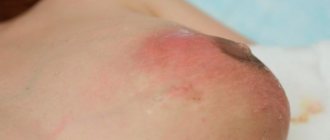You have been waiting for the baby for a long time, you are very happy about his appearance, you are trying to surround him with love and care. But here’s the thing: he cries often, and this, of course, upsets you. In fact, crying is a natural reaction of a newly born baby to the world around it. This is how he gets to know him, adapts to him, tries to convey to you that something is bothering him, so that his mother will come to the rescue. However, it can be quite difficult to determine the reasons for the crying of a newborn baby, in contrast to an already grown toddler.
The crying of a newborn is not always associated with illness. In this way, he informs you about problems that are important to him, including:
- hunger and thirst;
- pain and discomfort;
- overheating or hypothermia;
- fatigue;
- lack of attention and communication.
Don’t worry, over time, all mothers begin to understand why a newborn baby cries, as this happens for different reasons, depending on the situation.
How to understand and help?
A hungry baby begins to cry some time after feeding; he screams loudly, protractedly and demandingly. In addition, the baby begins to make sucking movements with his mouth, pulls his arms, and, once in his arms, looks for the breast. In such a situation, you need to feed the child, even if it is too early. This problem often occurs in families who follow a feeding plan by the hour.
Baby in wet diaper x
begins to worry and whine, and he whines continuously. Try to change your diaper (even a reusable one) more often, as accumulated urine and feces irritate baby's delicate skin.
In addition to wet diapers, your baby may also be bothered by wet or tight clothing. The baby is uncomfortable in it, he fidgets, is capricious, does not calm down in his arms, and tight clothes rub sensitive skin, causing diaper rash. To help and soothe, change your child's clothes and treat irritated areas of skin with oil or cream. To prevent diaper rash, zinc ointment is good.
Newborn babies often cry from heat and cold. This is due to the fact that their thermal regulation system is not yet fully developed, and they very quickly overheat or overcool. If the baby is hot, he blushes, whines, and rushes about in the crib or stroller; In such cases, red spots appear on the skin - prickly heat. If he is cold, then the crying is sharp and loud at first, then sobs and hiccups appear. The baby's arms, legs, and skin on the chest and back are cold.
Overheating is very dangerous for a newborn, as the temperature immediately begins to rise. Therefore, he urgently needs to be undressed and, if possible, wiped with a dampened, but not cold, towel. A frozen baby needs to wear warm clothes and socks.
A baby aged 0 to 3 months has an immature, hyperexcitable nervous system, he gets tired quickly and sleeps almost the whole day, so he often cries precisely from fatigue. If the baby is tired, he becomes capricious from any of your actions and attempts to entertain him. However, it is important to know that a tired baby may not immediately calm down and fall asleep. To help, you need to remove all loud sounds, pick him up, rock him and sing a quiet song. Many children quickly calm down in the fresh air.
The baby has just been born, and already really wants attention and communication. Oddly enough, this is true. In addition, a lack of communication in the first months of life negatively affects the development of children’s intelligence and the formation of the emotional-volitional sphere. A bored little one will start chatting, and if they don’t approach him for a long time, he’ll start screaming loudly, demanding attention. Such a requirement is not a whim, but a vital necessity. Try to hold the baby in your arms more often, talk to him, walk around the house and show him everything. Slings will help you a lot with this - you will have your hands free, and the baby will feel you close and enjoy life.
Cries when it hurts
Above we described the reasons for a healthy baby’s crying, but, of course, children also cry when something hurts. In such cases, you should consult your doctor. Features:
If the baby is in pain, he screams shrilly and inconsolably, squirms and arches (you can read in detail about why a child arches and cries). Pain can be caused by:
- colds (sore throat and stuffy nose);
- pressure; the newborn’s fontanel has not yet closed, so he is more susceptible to changes in the weather;
- inflammation of the ears (otitis media); with otitis media, the baby may suddenly scream in his sleep from pain and wake up;
- colic and gas in the intestines.
The problem is that small children themselves are not yet even able to understand what hurts them, so they always react the same way: they scream loudly, strain and kick their legs. Parents, first of all, think that their child is worried about his tummy. But let's figure out what signs there are for abdominal pain in order to rule out this cause of children's tears, or, conversely, take appropriate measures.
- The tummy is hard;
- A rumbling sound is heard;
- The baby begins to cry after feeding, pulls his legs towards his stomach, then sharply straightens them and screams loudly;
- Crying attacks occur in the evening before bed and last for a long time
We are taking measures:
- warm your little one's tummy. This is best done using an ironed diaper;
- give a massage, stroking the stomach clockwise;
- give anti-bloating medicine prescribed by the pediatrician;
- will help, which you can prepare yourself by adding one teaspoon of dill seeds to a glass of water.
But it is not recommended to use gas tubes often, as their hard tip can damage the intestinal walls.
Everything should be fine, but the baby is crying
Infants can often cry in situations that, it would seem, should bring them satisfaction and joy. The reasons for this can be completely different.
Why is the baby crying
Children under one year old cry quite often, and parents have no choice but to learn to understand the reasons for crying and do everything possible to calm their baby. Why a child cries and how you can immediately help him, and when to see a doctor, pediatrician, medical consultant of the SMART-MOM project Polina Aleksandrovna Kizino will tell you.
- Polina Alexandrovna, there is no baby who doesn’t cry. Why does a newborn cry?
— Parents often worry about their babies’ crying, thinking that something bad has happened. In fact, a small child does not know how to communicate that he does not like something in any way other than crying. There is no crying without a reason. It is he who provides the attention and help of parents. After all, the baby cannot take care of himself yet, and he simply physically needs an adult who will do something that will alleviate his condition. Yes, crying is really a little unsettling. But that’s what it’s designed for: for us, adults, to respond to children’s needs.
— How to understand why a newborn is crying?
“It is, of course, difficult for a mother who does not yet know how to distinguish between the tones and intonations of a child’s crying to understand why the child is screaming or whining. And that's okay. Babies may cry differently in different situations. And here it is not the characteristics of crying that are important, but an understanding of how the child behaves in a specific environment. Therefore, in most cases, tactics help when the mother tries to correct the supposed cause of the child’s anxiety.
— What types of crying are there?
— You can understand why a child is crying only by checking the supposed cause and evaluating his actions at that moment.
Reasons why a baby cries
| Hunger |
|
| Teeth cutting |
|
| Stomatitis |
|
| Cold or hot |
|
| Full diaper |
|
| Cold |
|
| Colic |
|
| Constipation |
|
| Thrush |
|
| Fright |
|
| Overwork |
|
— In young children, the psychological causes of crying are difficult to distinguish from others. After assessing the basic physiological needs - the baby must be well-fed, in a dry diaper and moving - reasons related to health, including psychological: fear, overwork, stress, are excluded. They can only be removed by physical contact with the baby. Let him be close to you, see that everything is okay, and feel safe. Of course, if parents do household chores all day and do not have contact with the baby, out of loneliness he will demand attention through crying.
— Mothers often complain about crying during feeding.
— During feeding, the baby can cry for both minor and very serious reasons. You need to see a doctor so that he can help you understand the situation and, first of all, rule out problems with the child’s health.
Causes of anxiety during and after feeding
Breast-feeding
| Artificial feeding
| Child's health
|
— How to calm a child when he cries?
- When the cause of crying is identified and eliminated, the baby stops worrying. Of course, at this moment the child really needs his parents to help and console him, rock him in his arms, and gently stroke him. And even if parents cannot completely eliminate the cause, as in the case of teething, contact with them significantly alleviates the child’s condition.
What to do if the baby is crying
- The child is bored - pick it up.
- The baby is angry and stressed - contact with a significant adult is important for him. And if the mother is calm, then the baby gradually calms down.
- The baby is lying uncomfortably or is tired of lying in one position - turn him over from his back to his side or, conversely, lay him on his stomach.
— You need to understand what calms the baby and what provides him with a state of comfort. Predictable things are very important and valuable for children - when they know what happens to them all the time and leads to something good and pleasant.
What else can help?
| White noise - for children, these are background sounds of nature, water (even in the bathroom), the sound of rain, and so on, which act as a distraction. When an extraneous sound appears, the baby begins to listen to it, which helps him relax and go into a calmer state, into sleep. | Wiggles - They calm some babies, but there are children who do not accept rocking, and this method will not work with them. | Swaddling - is unlikely to help calm the child, unless you take him in a tight hug. The warmth and smell of mom, skin-to-skin contact, and a gentle voice can work best. |
Crying helps the baby capture the attention of his parents so that they find out the cause of his anxiety. But crying is not a diagnosis or a symptom, but a consequence of some condition from the point of view of physiological or psychological health, and sedatives will not help in such situations.
— In what cases can parents cope with a child’s crying on their own, and when should they consult a doctor?
— Much depends on the age of the baby and what the parents see besides crying.
| The child is crying because he cannot sleep | Prolonged crying due to overwork may occur if the child does not fall asleep on time or there is a failure in the routine. There is no point in seeing a doctor; you need to try to make the baby relax and fall asleep. |
| The child cries for more than two hours in a row due to a bloated abdomen | If the child is not helped by lying on the stomach, abdominal massage or a gas tube (it should be used with caution), then, of course, in this case, call a doctor. |
| The child has a temperature above 38 degrees | He may cry a little, but after taking the antipyretic he feels better. However, if a child is very worried even at a temperature of 37.5 degrees, and antipyretics do not help him, then it is better to call a doctor for an examination and to rule out serious health problems. |
| The baby does not latch onto the breast, is nervous and cries, has vomiting or diarrhea | Such conditions require medical intervention. Because nutrition is a basic need, without which a child cannot be left. With excessive vomiting and diarrhea, the baby may lose a lot of fluid and not digest food. |
| The baby cries for a long time and cannot go to the toilet | This is a reason to consult a doctor to develop tactics to prevent constipation. |
| The child constantly cries and does not respond in any way to attempts to calm him down. | Sometimes a mother calls an ambulance because she does not understand what is happening to the child. Sometimes hospitalization may be required for examination. |
— Why can’t a child’s cry be ignored?
— Some of the conditions that lead to children's crying require the participation of an adult to solve the problem. Five minutes of anxiety should not cause worries for parents, but if a child cries for several hours on end, this adversely affects his general condition and the oxygen supply to the brain, since the breathing rhythm changes when crying. In addition, ignoring crying by parents leads to the fact that the child ceases to believe that they can help him.
— What mistakes do young parents most often make when trying to calm their child down?
— Parents look at crying quite superficially: there is often a false idea that the baby can only cry because of hunger or a wet diaper. Therefore, young mothers, seeing the child’s anxiety, first of all begin to feed him. So they do not always eliminate the cause of crying and at the same time teach the child to “eat up” stress in case of any excitement. It is not advisable to act in this way.
In addition, young parents do not notice the psychological aspects of childhood disorder. It seems to them that if the child is well-fed, healthy and dry, then there is nothing to cry about, which leads to missing the true reason for crying. But it is important for parents to provide their child with psychological support so that he feels comfortable. Because the more a child has to fight for the attention of mom, dad or another significant adult, the more pronounced his anxiety will be - it will take much longer to calm down.
There are many reasons for a baby to cry. And the younger the child, the fewer options and opportunities he has to tell his parents that something hurts him or he doesn’t like something. Therefore, in addition to the most obvious reasons - illness, hunger and an overfilled diaper - it is important to pay attention to other, less noticeable reasons for the baby’s upset. As you know, children do not cry without a reason. Careful observation of the baby's condition and mood will allow you to detect in time what is bothering the child and help him.
Pediatrician Polina Aleksandrovna Kizino
*The ideal food for an infant is mother's milk. WHO recommends exclusive breastfeeding for the first 6 months. MAMAKO® supports this recommendation. Before introducing new foods into your baby’s diet, consult a specialist.
Crying while feeding
If a child cries, it means:
- he's in pain. Pain can be caused by the same otitis media, which makes it difficult to swallow; in addition, the pain is very sharp and severe, so even a hungry baby will scream loudly after the first sip, begin to arch and throw back his head. The oral cavity may also be inflamed (stomatitis, thrush), so in the mornings and evenings, during hygiene procedures, inspect the baby’s mouth for the appearance of white plaque or pustules. They must be treated, since, for example, herpetic stomatitis is extremely dangerous for a baby;
- I don't like the taste of mother's milk. It is known that everything you eat affects the taste and quality of breast milk, so be careful and read the article “What is advisable to eat during breastfeeding.” Also, there may be milk residues on the nipples that have already gone rancid, so the breasts must be washed before feeding the baby, but the product you use to clean the breasts may also have an unpleasant taste and smell. In general, there are a lot of rules for feeding infants, and this is a separate topic;
- the nose is stuffy, and it’s simply difficult for the baby to breathe when he eats;
- teeth are being cut;
- I just swallowed too much.
Crying while bathing
It happens because:
- the baby finds himself in a new environment and is afraid of his own movements in it;
- too hot or cold water;
- you feel insecure, and the baby feels it;
- There are wounds, redness and diaper rash on the skin that hurt.
To make the bathing process pleasant and joyful, you need to:
- check the water temperature - it should be approximately 36 degrees (what water to bathe in);
- be calm during water procedures, immerse the baby in the water slowly - all your movements should be smooth and confident;
- feed the baby before bathing him so that nothing bothers him;
- monitor the condition of your skin;
- give the baby time to get used to the new, reassure him, tell him everything you are doing; You can add soothing herbs to the water, see the article “What to do if you are afraid to swim.”
Cries when going to the toilet
It happens that newborn babies begin to cry when they have a bowel movement or before urinating. As for the baby's tears when he poops, they are caused by increased gas formation or constipation. When constipated, the poor baby strains, grunts, but cannot go to the toilet. To avoid this problem, you should breastfeed the baby; if possible, then carefully select the formula and let's drink water more often during the day.
If your baby starts crying before peeing, it could be:
- The fear of this very action, which will pass when the baby grows up and has better control of his body;
- Infections of the genitourinary system
- A narrowing of the foreskin (phimosis) in boys, which causes them to be unable to pee normally.
In general, it is the little boy who, due to his structural features, is more at risk for diseases of the genitourinary system. Therefore, keep an eye on how often, how much and how your boy pees, and regularly examine his genitals so as not to miss any alarming symptoms.
Crying in a dream
The sleep of infants differs from the sleep of an adult - the baby does not fall asleep deeply and for a long time, but sleeps as if in fits and starts, so in a dream he can be disturbed by everything that happens when he is awake, namely:
- hunger;
- pain;
- heat or cold;
- absence of mother nearby.
If your baby constantly screams at you every night, then you should inspect his crib. Any wrinkle in the sheet or curled blanket can interfere with it. He may cry because the elastic from his clothes has rubbed his skin, or he has been lying sideways, or simply because his mother is not around. To ensure that both you and your beloved child can sleep peacefully at night, you should try sleeping together.
As we can see, it is difficult to understand the reason for a baby’s tears, but it is possible. If your baby is not just capricious, but screams loudly and constantly, then, of course, you need to contact a specialist who can determine what’s wrong. Since this behavior is no longer the norm, and may be a consequence of a serious illness.
In general, remember that the little man needs to be loved and pleased, then he will answer you in kind.
We recommend reading: .
Newborn babies are delicate and fragile. Parents have to closely monitor his health. A baby's crying is a signal that something is bothering him. But determining the cause of anxiety is very difficult. In the first year of life, many children cry and bend over after feeding. Why does this happen and what to do about it? A child can be relieved of discomfort, but first you need to determine its cause.
Why does a newborn cry after breastfeeding?
The most common reason why a baby cries after feeding is colic. They represent pain in the intestines caused by increased gas formation. The main sign of colic is a sharp, high-pitched cry from the baby. At the same time, the newborn begins to blush, arch over, twist his legs, clench his hands into fists, close his eyes and hold his breath.
Colic usually appears in the afternoon, towards evening. Their average duration is 3 hours. At other times, the baby feels well, he gains weight and has a good appetite.
The nature of the appearance of colic has not been precisely studied by doctors. Painful sensations in children appear unexpectedly and disappear abruptly. Many children suffer from colic from the month of life until they reach 3 or even 6 months. Some babies do not develop colic.
There are no universal remedies for getting rid of infant colic. But there are several ways to alleviate the child’s condition:
- Shifting or carrying the baby in your arms, tummy down. This pose helps eliminate excess gases.
- Massage the tummy clockwise.
- A heating pad or warm diaper on the tummy.
Dill water helps many children with colic. Nursing mothers are recommended to drink fennel teas.
Among the medications, drugs based on simethicone help - Espumisan, Infacol, Kolikid, Bobotik, Sab simplex. They must be taken with caution. Although they are approved for small children, they contain flavorings and can cause an allergic reaction.
As a last resort, you can use a gas tube or an enema. The main thing is not to harm the baby: the gas outlet tube can injure the anus, and the enema washes out the natural microflora, which can lead to intestinal dysbiosis and the inability to defecate on its own.
Swallowing air during feeding can lead to colic. This happens if the baby is not applied to the breast correctly. When feeding, the baby should not be distracted by extraneous things. At this time, it is better to turn off the TV and remove bright objects away. In order for air to escape from the stomach, you need to hold it in an upright position for 15 minutes after feeding.
Increased gas formation can be caused by foods high in sugar that a nursing woman eats. She should go on a diet.
The cause of colic can be lactase deficiency. The breast milk that the baby receives at the beginning of feeding is called “foremilk.” It is rich in lactose (milk sugar). After about 10 minutes, the so-called “hind” milk begins to be produced, rich in fats that neutralize lactose and reduce gas formation. If a newborn receives only foremilk, then he or she develops an excess of lactose and a lack of lactase, which leads to bloating and flatulence.
Sometimes crying causes a feeling of hunger if the mother does not have enough milk due to problems with lactation. To check whether the baby is getting enough food, you need to weigh him before and after feeding. The result obtained is checked against the food consumption standards of children of the corresponding age. You can also determine malnutrition by the number of wet diapers (there should be at least 6 of them per day). If the newborn really does not get enough to eat, you need to supplement him with formula.
Too much milk pressure can cause fear for the newborn. If he doesn't have time to swallow, he gags, squirms, screams and refuses the breast. In this case, it is worth reassuring the child, perhaps expressing excess milk and continuing feeding.
Newborn crying after feeding
Crying after feeding should not be ignored. This symptom may indicate the presence of a disease. A newborn cries after feeding due to colic, improper selection of formulas, intolerance to breast milk, malabsorption syndrome and other conditions.
Table of contents
|
Why does a newborn cry after breastfeeding?
There are many reasons for crying after breastfeeding. The main one is colic. Colic is a normal condition for a baby during the first 3 months.
They are caused by the immaturity of the digestive tract.
Colic in the first days after delivery occurs due to the colonization of the intestines with digestive bacteria.
A newborn has intestinal catarrh. The baby's first stool is black (meconium). Next, the stool changes after 1-2 days.
This is caused by the colonization of bacteria that the baby receives when passing through the birth canal, laying on the stomach, or first applying to the breast.
Most digestive bacteria, such as bifidobacteria, staphylococci, lactobacilli and others, enter the intestines with mother's milk.
Colic in the first month is due to the fact that the baby does not have enough enzymes for digestion. For this reason, the breakdown of proteins, fats, and carbohydrates occurs incompletely.
Undigested food particles begin to provoke bloating. When the intestine is distended by gases, the child feels pain throughout the abdomen, which is accompanied by crying.
Crying after feeding occurs within 10-15-20 minutes. During sucking, the baby's intestines begin to spasm in order to promote its contents.
Severe spasms cause pain.
Colic can be caused by swallowing air.
If the baby is not attached to the breast correctly, the baby swallows a lot of air. Also, aerophagia often occurs when the baby is very hungry.
The baby is in a hurry to suck, swallowing a lot of air. Excess gases in the intestinal cavity provokes pain.
Other reasons for crying after breastfeeding:
• Breast milk intolerance is a rare pathology; characterized by a peculiar allergy to the protein of mother's milk.
• Improper nutrition of the mother - consuming a large number of foods that cause bloating: cabbage, legumes, sugar, nuts, an abundance of kefir, milk and other products.
• Stomatitis - damage to the oral mucosa causes pain during feeding.
• Otitis – provokes pain during sucking and swallowing.
• Malabsorption syndrome (lactose intolerance and other forms) – characterized by impaired absorption of substances supplied with food, such as lactose, iron, fats and others; pain occurs immediately after feeding or after 20 minutes; The diseases are distinguished by the presence of chronic diarrhea, malnutrition, and dehydration.
A kind of malabsorption syndrome is possible when a child consumes only foremilk.
Foremilk contains a lot of lactose. And the child has a physiological enzymatic deficiency - a deficiency of lactase, which breaks down lactose.
Useful tips for mothers: BABY HEALTH
Excessive supply of foremilk leads to diarrhea and abdominal pain after feeding. This malabsorption syndrome is caused by improper feeding techniques.
After eating, the baby also cries if there is constipation. Pain syndrome in this case appears after eating or during.
The pain is caused by intestinal spasm and painful movement of intestinal contents.
Constipation in the first months of life is possible in the presence of megacolons (long intestines).
This is a congenital condition in which the intestines are not anatomically formed correctly. It has a great length.
To fit in the stomach, the intestine forms a loop, which makes it difficult for stool to pass through.
In the first month, megacolon is characterized by stool retention for 1-2 days. The stool is mushy. The baby may experience severe bloating.
The stool is induced by gas tubes or an enema.
The baby cries after feeding if he has eaten too much. Overeating causes pain and bloating.
Due to the physiological lack of digestive enzymes, overeating further provokes dyspeptic symptoms: diarrhea, bloating, regurgitation.
Malnutrition also leads to crying. Often this situation occurs when the mother’s lactation function is insufficient.
After feeding such a child, you need to supplement with formula.
The child screams after feeding if he is bottle-fed
In bottle-fed babies, colic may be the cause of crying. The pain syndrome when consuming formula is more pronounced than when breastfeeding, since the formula contains cow's or goat's milk proteins.
They differ in composition from the protein molecules of mother's milk.
Other reasons:
• Incorrect selection of food for a baby - the formula was chosen inappropriately for the baby’s age or was not suitable for the baby.
• Feeding on demand, not by the clock - the formula is digested more slowly than breast milk, which provokes overeating; Feeding on demand leads to bloating and abdominal pain after feeding 15-20 minutes.
• Cow's milk protein intolerance - when using a formula containing cow's milk, an allergy is possible, especially in the early stages of a baby's development.
• Constipation - caused by the mixture itself, since the structure of the proteins is different; Milk substitutes contain other stool softening enzymes (lactulose), which are not always effective.
• Lactose intolerance - mixtures containing lactose provoke abdominal pain and diarrhea in children with lactase deficiency.
• Incorrect feeding - the tilt of the bottle during feeding is incorrect, there is no valve to relieve vacuum in the nipple (anti-colic system); this leads to the swallowing of air during feeding and increased gas formation.
• The mother does not release air after feeding - this causes increased gas formation.
A bottle-fed baby has a need for water. If you don't add water, your baby will develop dehydration.
What to do if your baby cries after feeding
First of all, to prevent crying, it is necessary to maintain breastfeeding.
Mother's milk provides digestive enzymes and immune protection. If your baby has colic, you need to breastfeed (formula) correctly.
Natural feeding is carried out first with one breast, and then with the other.
After feeding, be sure to express the remaining milk to avoid stagnation and milk deficiency.
When breastfeeding, the baby should grasp the mother's nipple completely, the lower lip should be inverted, and the mouth should be wide open.
The baby is held during feeding so that he is turned with his stomach (facing) towards the mother. This will prevent air entrapment and cracks in the nipples.
Breastfed on demand, and bottle-fed on an hourly basis (every 3-4 hours).
This will prevent undereating and overeating.
While using the mixture, keep the bottle tilted at 30-40ᵒ so that the nipple is completely filled with milk. It is also better to use bottles with an anti-colic system.
With any type of feeding, you need to release the air after eating.
To do this, you need to hold the baby in a column or raise the head end by 60ᵒ. You need to hold it like this for 20 minutes.
If your baby has colic, you can stroke the tummy clockwise. This will help gases pass through the intestines faster.
Lying on your stomach is also helpful. All these activities are carried out before feeding or an hour after eating.
A mother with colic must follow a diet. You should avoid foods that cause bloating. You cannot eat cabbage, peas, beans, cucumbers, or sweets.
You can drink no more than 200 ml of milk and kefir per day.
Preference should be given to:
• gluten-free cereals with a small amount of milk (gluten ones are introduced gradually, looking at the child’s reaction);
• soups in the second broth with potatoes, broccoli, carrots, cauliflower, cereals;
• boiled or steamed meat;
• steamed semi-finished products;
• cereals, pasta;
• white bread;
• cottage cheese up to 50 g per day.
If there is increased gas formation, the child should be given simethicone (Espumizan, Bobotik).
Evening bathing is useful for colic. It relaxes the intestinal muscles and calms the baby.
If there is malabsorption syndrome, the mother is prescribed a diet. When bottle-fed, the baby needs nutritional correction.
The baby is given a therapeutic lactose-free formula, nutrition based on soy, amino acids, goat milk, depending on the cause of the disease.
Constipation requires the use of laxatives and special mixtures that soften the stool.
With megacolon, the baby is advised to take Duphalac for a year or two at a dose of 2.5-5 ml until the loop straightens out.
If there are several loops, therapy does not help, surgical intervention to shorten the intestine is required.
If your baby has ear pain, consult a doctor. The ENT doctor will prescribe an examination, drug therapy in the form of antibacterial drugs, ear drops.
Stomatitis is treated with antiviral drugs. If there is thrush in the mouth, antifungal agents are prescribed.
Crying after breastfeeding has many causes. For correct diagnosis, you should contact your local pediatrician.
You should not solve the problem yourself. This can lead to complications.
- about the author
- Recent publications
Olga Kuznetsova
author of the publication (site editor)
DOCTOR - PEDIATRIC Education: Siberian State Medical University. Certificate of specialist in the specialty "Pediatrics"
Olga Kuznetsova recently published (see all)
- Dairy-free porridge – 01/08/2021
- Gluten-free porridges – 12/23/2020
- Formulas for premature babies - 06.12.2020
Why does a newborn cry after formula feeding?
In addition to colic, which, according to statistics, occurs more often in bottle-fed babies than in breastfed babies, the cause of crying after eating can be banal overeating.
Breast milk is absorbed much faster than formula. The newborn does not understand satiety, does not refuse an additional portion of food, and as a result, his stomach begins to hurt. To solve this problem, you need to find out the norm of food volume corresponding to age and feed him in portions.
To prevent your baby from swallowing air when feeding from a bottle, you need to choose the right pacifier. The hole in it should not be too large so that the baby does not choke.
The bottle should be held at an angle so that the nipple is filled with the mixture and air does not accumulate in it. Before eating, the baby is placed on his tummy and then carried in a column.
To get rid of colic, you can change the mixture.
Constipation
Another reason why a baby may have a stomach ache is irregular bowel movements. Infants can have a teaspoon of stool after each feeding - up to 10-12 times a day, and once a week in large quantities. Closer to six months, bowel movements twice a day are considered normal, and by 1.5 years - about 6 times a week. But not only regularity is important, but also consistency - the stool should not be harder than the age norm, otherwise the child will experience pain. As a result, so-called psychological constipation may develop - when the child holds back due to painful sensations, and the problem worsens. Constipation in a newborn can occur for several reasons:
- the child drinks little water;
- milk that is too fatty;
- breast milk deficiency;
- cutting power change
- food allergies;
- colds or infectious diseases.
First, contact your pediatrician for an examination. You can do a circular massage, leg bending exercises, or “Bicycle” on your own. When breastfeeding, put the baby to the breast more often; when introducing complementary foods, make sure that the baby drinks enough water. Mom should reconsider her own diet so that breast milk is not too fatty, eat non-allergenic fruits and vegetables and drink clean water.
Other reasons for crying after feeding
If the above methods do not help the child, he continues to scream immediately after each feeding, then you can find out why this happens by considering other reasons:
- Otitis is an inflammation of the ear. The painful sensations intensify during the process of sucking the breast or bottle. The baby usually tries to touch his ear and scratch it.
- Thrush (candidiasis) is an inflammation of the oral cavity. It is characterized by the appearance of a white coating on the tongue and the inside of the cheeks. The process of eating becomes painful.
- Pathologies of the digestive tract.
- Intestinal infection. Accompanied by pain, diarrhea, vomiting, and increased body temperature.
- Migraine. It has the same external manifestations as colic, but it’s not the tummy that hurts, but the head. The cause may be increased intracranial pressure.
If a child cries after feeding, you need to consult a doctor to rule out the development of pathology. Some diseases, such as otitis media, require immediate treatment. In this case, only an experienced doctor should prescribe medications to the baby. Any self-medication can threaten the health of the baby.
The baby happily grabs his mother's breast and begins to suck greedily. Food should bring him joy, but why does a child cry so often after feeding? These are clearly not simple whims: the newborn squirms, screams - it’s immediately obvious that he is in pain. The pediatrician will give advice on how to improve the baby’s condition, but in order to completely solve this problem, you need to understand its causes. The local doctor has a lot of calls to other patients; he cannot calculate the time to come to you just before feeding and observe how the child’s condition changes. The mother is next to the baby around the clock, she can observe all the changes in his condition and understand what is bothering the baby.
Lactase deficiency
Lactase is an enzyme that breaks down “milk sugar” - lactose. Lactose is found in milk and promotes the absorption of calcium and minerals in the intestines, as well as the proliferation of lactic acid bacteria that are beneficial to the body. Usually, in infants, the body produces enough lactase to digest milk. However, a lack of this enzyme can lead to an imbalance of microflora, provoke fermentation processes and increased gas formation in the intestines, cause diarrhea with further dehydration of the body, lead to a deficiency of microelements and weight loss. One of the signs of lactase deficiency is frequent loose stools, foamy in appearance, with a sour odor.
Important: if your baby has digestive problems, it is better to immediately consult a doctor to rule out the presence of the disease, and if not, determine the causes and prescribe treatment. Very often, lactase deficiency is confused with milk allergy. A specialist must deal with the problem.
Why is food not a joy for babies?
A well-fed baby should be cheerful and happy. He will either fall asleep peacefully, or will play and happily communicate with his parents. If immediately after eating he starts crying, something is wrong, he asks for help. You don’t need to immediately look for symptoms of a disease; first rule out the most common causes:
- colic and gas;
- hunger;
- binge eating;
- something scared the child.
It is believed that a newborn himself knows how much food he needs: he will not eat too much, but he will not remain hungry. This is a misconception: the mother may not have enough milk in her breast, and if the nipple is not selected correctly, the baby may overeat. Weigh him before and after feeding and you will see how much milk he has drunk. If necessary, give another breast or, as recommended by the pediatrician, supplement with formula. After each meal, hold the baby upright, after a while the air will come out of the stomach, and he will not suffer from colic.
Sometimes the amount of food is sufficient, but the child still remains hungry. Why does this happen? The reason is the low fat content of mother's milk. Strain a small amount into a glass container and look at the color. A watery bluish tint indicates that the milk is not nutritious enough. Does a newborn eat all the contents of the breast to the last drop? The first portion is the thinnest, it will quench your thirst rather than your hunger. Don’t let the baby be lazy, make sure that he doesn’t leave the thickest and most nutritious last milliliters.
Do not feed your baby in front of a running TV or computer; he will be distracted by bright pictures and may not eat his fill.
Almost all nursing mothers know that they should not eat foods that cause severe gas, irritation or allergies. For some reason, these recommendations often forget to mention those with a sweet tooth. Remember how you prepared kvass or put the dough: what strong fermentation and gas release occurred from the presence of sugar. If you eat a large piece of cake with sweet tea before feeding, the same thing will begin in the baby's tummy. If you have an irresistible love for treats, replace sweets with berries and fruits.
What can constantly scare a baby? Go into the room where your newborn usually eats and listen to all the sounds, especially those that have become familiar to you and go unnoticed. A clock with a loud chime, a rumble in water pipes, an elevator that is too loud, or frequent slams of the entrance door. You cannot eliminate most of these sounds; try improving sound insulation with carpets on the walls, thick curtains or other methods. Walk around the apartment, perhaps you can find a quieter place for feeding.
When is a doctor needed?
You've corrected all your mistakes, but why won't your newborn stop crying after eating? Perhaps the cause of anxiety is illness. Look what the mucous membrane of his mouth looks like. If there is stomatitis or thrush, he may cry both while eating and after feeding. Pay attention to whether he constantly touches the same ear. If you notice this behavior, you need to show the child to an otolaryngologist. With otitis media, the pain becomes stronger when the baby sucks the breast and strains the facial muscles. Proper treatment will eliminate the cause of anxiety, and food will bring only pleasure to the baby.
Sometimes crying after feeding can cause ailments that have nothing to do with digestion. The baby just has a stuffy nose, why does he cry after feeding? The explanation is simple: he doesn’t have enough air, he has to constantly tear himself away from his chest. The tired newborn has not yet had enough to eat, but is no longer able to suck. Result: soon after eating, hungry crying occurs.
It happens that a baby is born with a pathology of the digestive system. Get examined to make sure that all organs have the desired shape and size and are positioned correctly. Sometimes the intestines get tangled, they are pinched or twisted somewhere. If the doctor insists on surgery, do not refuse. Of course, it’s a pity and scary to send a baby for surgery, but it’s better for him to endure it once than to suffer from pain constantly. Choose a good clinic with qualified specialists, and very soon you will forget about the unpleasant procedure.
Don’t forget that the child needs his mother’s attention and love. You fed the baby, put him in his crib and went to do some housework. The baby is bored and scared, he doesn’t understand why he was left alone, but he already knows that his mother always responds to crying. And if at the same time you scare her: twirl, twitch her legs, affection and kind attitude will be guaranteed. Do not deprive the little man of your care, nothing will happen if you do not wipe the floor once, but instead sit with the child. This activity will not take much time, and the baby will feel your love and will very soon fall asleep peacefully.
The baby cries after feeding - not many mothers know what to do in such a situation. It would seem that the baby has just received a portion of delicious milk and is ready to surrender to the arms of Morpheus. But no, instead of a sleepy angel, a screaming creature appears, not amenable to any known measures of calm.
From this article you will learn:
Dysbacteriosis
Dysbacteriosis is a disorder of the intestinal microflora, in which there are fewer beneficial microorganisms than pathogenic ones. At the same time, digestion noticeably worsens, and the baby cries after feeding with breast milk or refuses to eat at all. Dysbacteriosis is quite often observed in babies under one year old, and the reasons may be the following:
- immaturity of the baby's digestive system;
- poor nutrition (lack of breastfeeding or incorrect switching to infant formula);
- use of antibiotics by a nursing mother;
- viral infection and others.
External signs of dysbiosis in a newborn:
- flatulence;
- bowel disorder (diarrhea or constipation);
- poor appetite;
- lethargy;
- irritability;
- pale dry skin;
- frequent regurgitation, possibly vomiting;
- bad breath.
Please note that many symptoms related to the digestive system have similar symptoms, so you should not try to treat them on your own. If signs of illness appear, consult a doctor. After identifying the causes of dysbiosis, the specialist will prescribe appropriate treatment. These can be either drugs that destroy bacteria - bacteriophages, or probiotics and prebiotics that restore intestinal microflora.
What makes babies cry after feeding?
If the baby starts crying, it means something is bothering him. With his desperate cry, he signals the discomfort he is experiencing and requires immediate help from his parents. Finding out the exact cause of baby crying after feeding is what adults should do.
Often the cause of the disorder is:
- intestinal colic;
- accumulation of air in the stomach;
- hunger;
- binge eating;
- fright;
- ear diseases;
- diseases of the oral cavity.
Crying from colic
It is not difficult to recognize intestinal colic in a baby; they are perhaps the most pronounced. Signs of this common childhood problem are as follows:
- a piercing scream bordering on a squeal, accompanied by the release of gas;
- the hands are clenched into fists;
- the child knocks his legs;
- eyes closed, forehead frowning;
- the body is tense or arched;
- short breath holds occur.
The duration of an attack of pain is, on average, three hours, and colic most often appears in the afternoon or after evening feeding.
The nature of this phenomenon has not yet been scientifically substantiated, and the most interesting thing is that pain appears as if out of nowhere, and goes to nowhere. Just a second ago the baby could scream heart-rendingly, but a minute later he blurs into serene calm.
How to help
- Dry heat (a heating pad or an ironed hot diaper folded in four);
- Light circular massage of the tummy;
- Carrying a child in an upright position;
- Placing the baby on his tummy before and after feeding;
- Laying the baby on your stomach (this body position allows the baby to relax and get rid of air in the intestines).
Crying from the accumulation of air in the stomach
The accumulation of air in the stomach is real torture for the baby. It is difficult to completely avoid such a nuisance, since children swallow air along with milk, but helping them is quite simple - after eating, every baby should burp. Carrying in a column helps in this matter.
If the air does not come out well, you need to create a slight pressure on the tummy. The easiest way is to place the child on your shoulder, so that his arms and head are behind him. Just a few seconds in this position, and the air will come out and the excruciating pain will subside.
Crying from hunger
Screams of protest and tears after feeding may occur due to the child’s need for food not being fully satisfied. The chest (bottle) is empty, but the baby continues to stretch in it? This means it requires supplements. There are two ways to solve the problem:
- feed the baby from the second breast;
- increase the portion of milk formula.
From overeating
There is an opinion that babies do not eat more than they need. But it is not so. Artificial children suffer from particular insatiability, for which they pay with a feeling of heaviness in the stomach. For this reason, pediatricians around the world recommend strictly adhering to age-specific food intake norms and maintaining a daily routine. In order not to provoke crying after feeding, it is necessary to provide the baby with as much food as he can handle.
Intestinal colic
If a child screams and cries bitterly, strains a lot, blushes, twists his legs, sleeps poorly and refuses to eat, he may have colic. They appear due to the accumulation of gases in the intestines.
In this case, the tummy becomes inflated like a balloon, the seething in it is felt even if you put your hand on it; The baby spits up the milk and the stool may turn greenish. Most often, colic appears in the evening. Parents can encounter this problem at any age of the child, starting from his stay in the maternity hospital. There are several main causes of colic in infants:
- immaturity of the digestive system;
- constipation;
- violation of the diet by a nursing mother;
- improper attachment of the baby to the breast - he swallows air;
- Mom takes antibiotics.
To help the baby, you can do a circular massage of the tummy in a clockwise direction, as well as light gymnastics: put the baby on his back and bend his legs, gently pulling them towards his chest. These simple methods will help stimulate bowel function and get rid of gas. To prevent colic after feeding, it is worth holding the baby in an upright position so that he can get rid of swallowed air.
A nursing mother should exclude chocolate, brown bread, cabbage, legumes and other foods from her diet that cause gas formation in the intestines. It is better to replace irritating drinks like tea and coffee with herbal teas - for example, brew chamomile.
If the mother is sick, then, in agreement with the pediatrician, you can temporarily transfer the baby to an adapted milk formula. Valio Baby baby food consists entirely of natural ingredients and contains GOS prebiotics (galactooligosaccharides) - similar to those found in breast milk. Prebiotics are needed for good digestion and strong immunity of the baby.
#PROMO_BLOCK#











